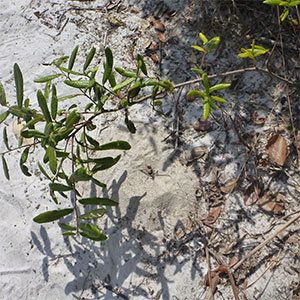Join the Lab
We are always interested in recruiting bright, talented, and curious researchers interested in computational, laboratory, and/or field research. Please read and follow the requirements below before contacting us regarding opportunities in the lab.
Postdoctoral Applicants
 Please submit a CV, description of past and future research interests, and contact information for at least three references. In your research statement, tell us what piqued your interest in our lab and describe the biological questions that you would be interested in pursuing.
Please submit a CV, description of past and future research interests, and contact information for at least three references. In your research statement, tell us what piqued your interest in our lab and describe the biological questions that you would be interested in pursuing.
Graduate Applicants
Graduate students supervised in the Klassen lab are enrolled in a Graduate Program (http://mcb.uconn.edu/graduate-programs/l) in the UConn Department of Molecular and Cell Biology (http://www.mcb.uconn.edu). Please note that admission to the program is limited and competitive - ensure that you are organized and apply early (http://mcb.uconn.edu/graduate-application-aid/). Questions relating to admissions to the Graduate Program should be directed to the Graduate Coordinator for the UConn Biological Sciences, Anne St. Onge (anne.st_onge@uconn.edu).
PhD students will perform (typically) three rotations in different labs in the UConn Molecular and Cell Biology department; contact Dr. Klassen following your acceptance into the Graduate Program to arrange for one of these to be in the Klassen lab. Placement in a lab for the remainder of the PhD program follows these rotations, and must be agreed upon by both the student and faculty member. Please note that performing a rotation in the Klassen lab does not necessarily mean that you will complete your PhD here; this depends on your performance during your rotation and the availability of funding and space. MSc students do not perform rotations, and so should contact Dr. Klassen following acceptance into the Graduate Program to explore research opportunities in our lab. Note once again that space and funding for research in the Klassen lab is limited and not guaranteed by acceptance into the Graduate Program.
Mentoring graduate students is extremely important and a high priority for both your and our lab's success - see here for a description of Dr. Klassen's mentoring philosophy and expectations: Graduate Students; Undergraduate Students.
Graduate students are typically funded via departmental Teaching Fellowships and Research Fellowships that are awarded based on funding and performance. Students are also encouraged to apply to external funding sources, e.g., the National Science Foundation's Graduate Research Fellowship Program (http://www.nsfgrfp.org).
Undergraduate Applicants
We encourage undergraduates to participate in our research program. Interested students should submit an unofficial transcript, a description of other planned course work, and a 1-2 paragraph statement explaining why you would like to perform research in the Klassen lab. Preference is given to enthusiastic and motivated students who can commit at least two full years to research and/or are enrolled in an Honors Program.